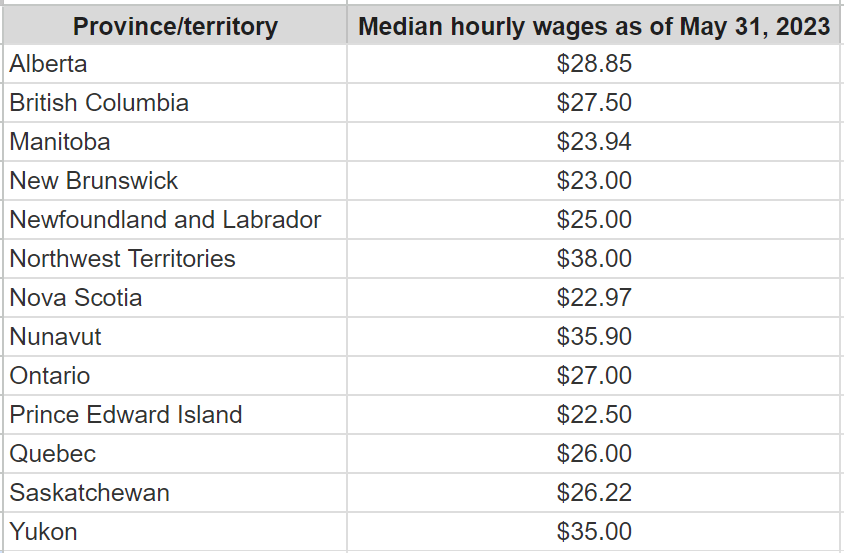2023년 5월 19일
캐나다
Guide to CanadaWhich Province Has the Highest Wage in Canada?
Explore the diversity of wages across Canadian provinces and territories for various occupations, offering insights into the job market.


(Government of Canada)
High-Wage Regions:
- Alberta: Known for its rich oil and gas industry, Alberta offers high wages in occupations such as engineering, trades, and resource extraction. In these sectors, the average annual salaries can range from $85,000 to $120,000 or more, depending on the specific role and experience level.
- Saskatchewan: With a strong focus on agriculture and mining, Saskatchewan provides competitive wages in these sectors, as well as in healthcare and construction. The average annual salary for workers in agriculture and mining can range from $55,000 to $90,000, while healthcare and construction occupations offer salaries in the range of $50,000 to $80,000.
- Northwest Territories: This region offers high wages due to its remote and challenging working conditions, especially in industries like mining, oil, and gas. In mining, workers can earn an average annual salary of $80,000 to $120,000, while in the oil and gas sector, salaries can range from $100,000 to $150,000 or more, depending on the position and experience.
- Ontario: As Canada's most populous province, Ontario offers a diverse job market, with moderate wages in sectors like finance, technology, healthcare, and manufacturing. The average annual salaries in these sectors can range from $50,000 to $90,000, depending on the specific occupation and level of expertise.
- British Columbia: Known for its natural beauty and thriving film industry, British Columbia offers moderate wages in occupations such as film production, tourism, and healthcare. In the film industry, average salaries can range from $40,000 to $70,000 per year, while healthcare professionals can earn between $60,000 and $90,000 annually. The tourism sector offers salaries ranging from $30,000 to $50,000 per year.
- Quebec: This province has a distinct culture and economy. Wages can vary, but overall, Quebec provides moderate salaries in sectors like aerospace, information technology, and manufacturing. In the aerospace industry, salaries can range from $50,000 to $90,000 per year, while information technology professionals can earn between $50,000 and $80,000 annually. Manufacturing jobs offer salaries in the range of $40,000 to $70,000 per year.
- Atlantic Provinces: New Brunswick, Prince Edward Island, Nova Scotia, and Newfoundland and Labrador are collectively known as the Atlantic Provinces. These regions have a lower cost of living but generally offer lower wages, especially in the service and hospitality industries. Average salaries in these sectors can range from $25,000 to $40,000 per year.
- Manitoba: Manitoba provides a more affordable cost of living, but wages may be lower compared to other provinces. Opportunities exist in healthcare, transportation, and agriculture. Salaries in healthcare can range from $40,000 to $70,000 per year, while transportation and agriculture sectors offer salaries in the range of $35,000 to $55,000 per year.

TeamSuperVisas Scribe


